Sydney historian Vasilis Vasilas recently announced his new project, ‘Little Athens (Volume One): Marrickville’, which focuses on the personal narratives and photographs of Marrickville’s shops and businesses, and the first volume will be published later this year.
Having compiled and published works on Greek, Estonian, Ukrainian and Hungarian Jewish communities, ‘Little Athens’, is an extension of his most recent publication, ‘Beyond the Shop Windows and Counters: Stories and Photographs of Sydney’s Current Greek Shops (Volume 1)’, and is part of the Agora Series, where he focused on the diversity of Sydney’s Greek shops and businesses in the post-World War II period.
As Vasilas explains, “These personal narratives on Marrickville’s shops and businesses began as early as 2015 when I was compiling this theme within the general Greek community. As the number of Marrickville personal narratives continued to increase, I realised there was an emerging project within this project and Marrickville deserved its own focus.”
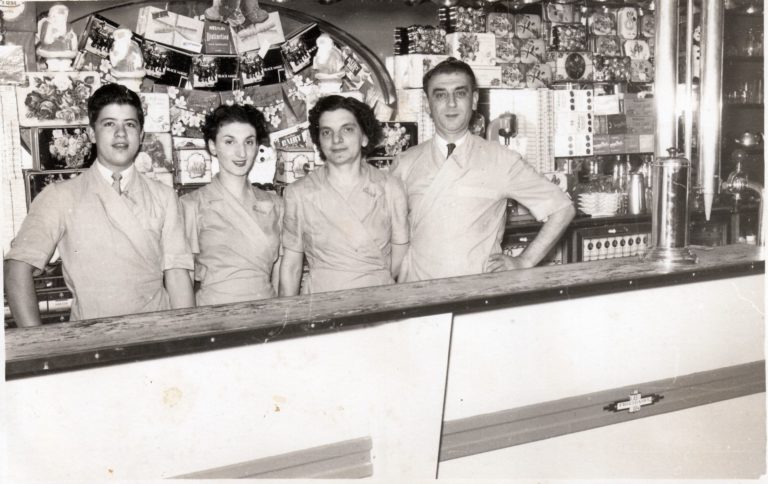
The first volume of this project on Marrickville’s shops and businesses focuses on the post World War II period and includes personal narratives and photographs from the first Greek shops of the 1950s until today, while the second volume will also include more recent shops and businesses.
With the migration of thousands of migrants of Europe after World War II, many migrant groups settled in areas for reasons such as being close to their workplaces and own people. In the immediate post-World War II period, many Greek migrants in the city suburbs such as Surry Hills and Redfern; by the early 1960s, they were settling in inner city suburbs such as Erskineville, Newtown and Enmore; by the late 1960s-early 1970s, when the numbers of Greek migrants had reach their peak, they were settling in Rosebery and Mascot. But it was the larger numbers of Greek migrants in Marrickville that later baptised it as ‘Little Athens’.
READ MORE: Open Marrickville has got the Greek blues
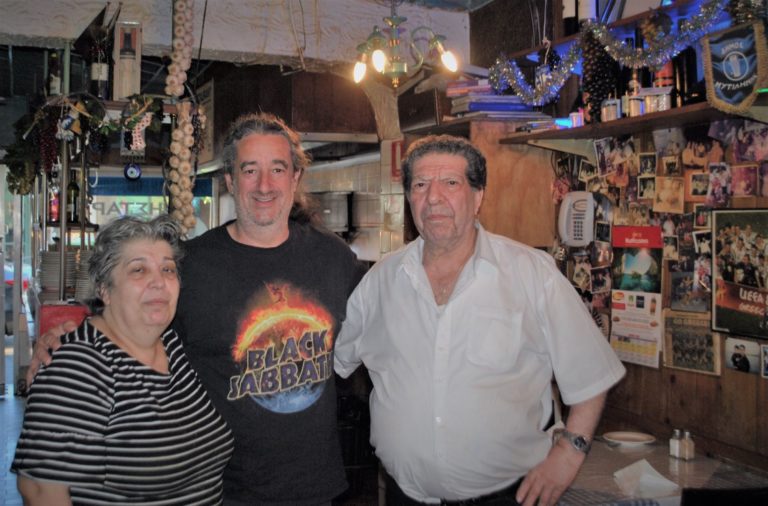
Marrickville’s socioeconomic importance as a hub for Greek businesses reflects the grander demographic changes to post World War II Sydney; the gravitation of thousands of Greek migrants to the area in the 1960s greatly impacted Marrickville’s business sector.
What drew thousands of Greek migrants to Marrickville was its enormous industrial area; thousands of Greek migrants settled in the area to be conveniently close to their respective workplaces. With the growing concentration of Greeks in the Marrickville area, there was an immediate need to cater for their everyday needs. There were other Sydney suburbs with sizable Greek communities but not at such large numbers as Marrickville. So many participants in this project remember, with nostalgia, when Greek was commonly spoken along Marrickville or Illawarra Roads. These Greek migrants yearned for products, such as cheeses and olives, from their homeland, so there was a need for delicatessens. They wanted places to dine, and socialise, which offered a Greek menu. They married and baptised their children, so there was a need for shops to offer the wedding crowns or baptism crucifixes, or photographers to capture these important social events. For their social occasions of visiting relatives and friends, they wanted shops to buy sweets and cakes. There was an emerging Greek market to cater for these Greek migrants and their needs. More importantly, they needed people behind the counter, or at work, with whom they could communicate and they could understand them.
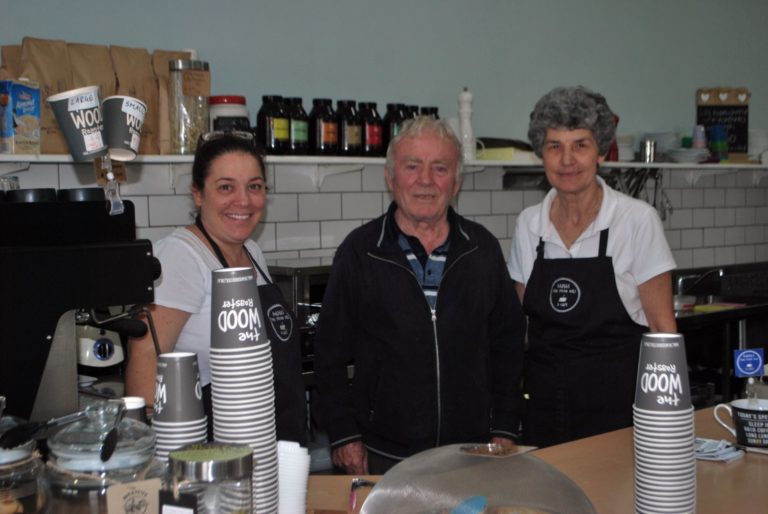
Running parallel to this growing local Greek market is also the emergence of the Greek identity in these Greek shops and businesses.
“These shops and businesses often took on a very strong Greek identity; as they were providing Greek products and services, they subsequently had Greek names,” Vasilas said.
Although the demographics of Marrickville have greatly changed over the last twenty years and the Greek presence has subsequently decreased, what surprised Vasilas was the relatively strong Greek business presence in Marrickville.

“Marrickville’s Greek presence may be a shadow of its heyday (i.e. 1960s-1990s) but Marrickville’s centrality – being so close to the city and eastern suburbs – and the expansion of Sydney City ensures Marrickville’s appeal to maintain shops and businesses there. So many of Marrickville’s shops and businesses may have closed over time, but many are still being operated, while there are also examples of new Greek businesses being established,” he said.
What is amazing about many of the Greek shops and businesses that continue to operate, after so many decades, is the way they have become an integral part of the Australian community. The Greeks and their cuisine, for instance, may have been alien to Australians and other non-Greeks in the 1960s but the high quality product and service – over so many years- from many of Marrickville’s shops and businesses has been recognised and accepted by the wider Australian community. On a grander level, the overall Greek contribution to Australia has been recognized and accepted.”
READ MORE: Marrickville’s Greek poster girl
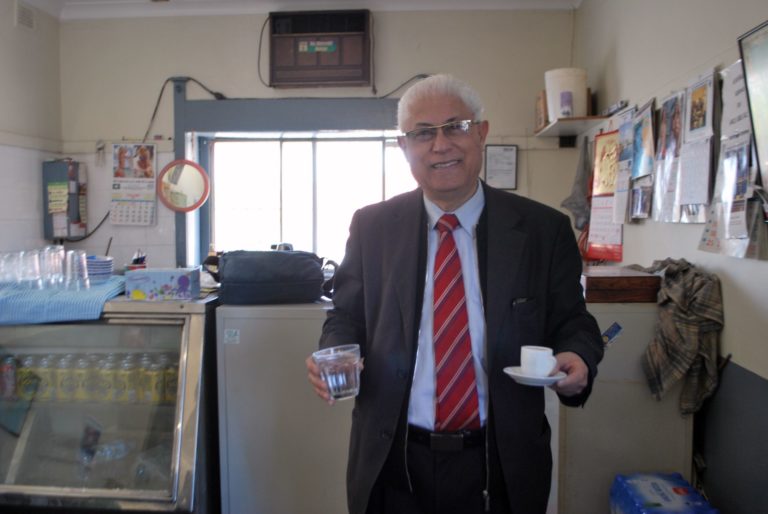
As Marrickville is such a large suburb, Vasilas stressed the need to capture the diversity of the Greek contribution within the local (Marrickville) and Australian markets because these Greek migrants and their children worked and continue to work in a wide variety of businesses and industries.
“Marrickville shatters every stereotype of what Greeks do in Sydney, and their shops and businesses’ contribution to the Australian market and community. These Greek migrants, and their children, worked in so many different industries; laying out the proposed book(s) highlighted the amazing diversity in what shops and businesses there are,” he says.
“To get a realistic vision of Marrickville’s Greek shops and businesses, you have to venture beyond the iconic ones and the mains streets, and go into the off streets and lanes to discover the less-known ones – who are equally working hard and contributing to the marketplace. Quite often, we place so much focus on the obvious shops and businesses because it is more convenient and easier to do so; in doing so, however, I have realised is we do not have a realistic image of the Greek shops and businesses’ diversity.
“Our attention on iconic Greek shops and businesses is deserved but what is surprising is the network of Greek businesses behind them that is often overlooked. We celebrate a Greek shop but what about the Greek supplier to this shop? Doesn’t their story need to be told?
“Marrickville’s Greeks continue to be in all sorts of shops and businesses. And this is what makes their story so special and it has to be told.”
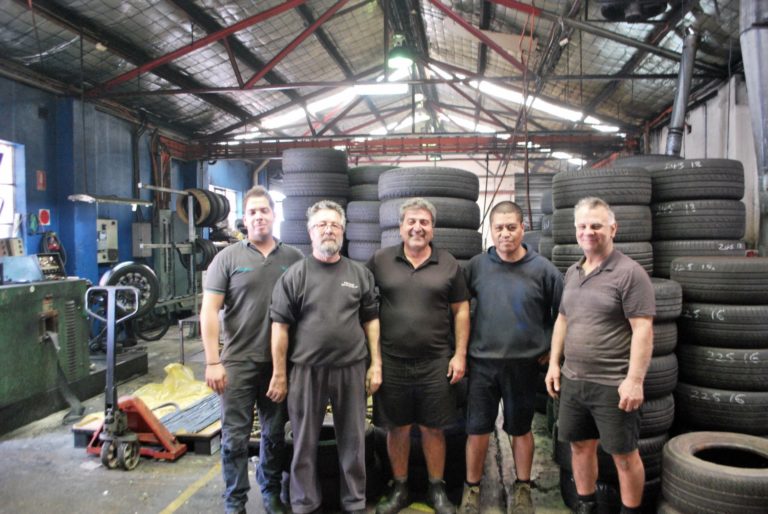
Little Athens (Volume One): Marrickville, Stories and Photographs of Greek Shops and Businesses will be published later in 2019.









